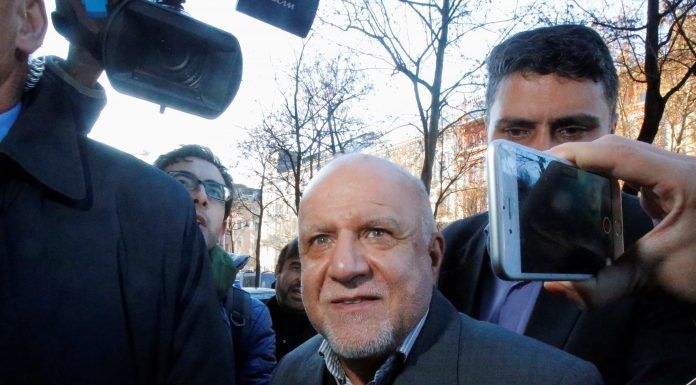DUBAI, July 1 (Reuters) – Members of the Organization of the Petroleum Exporting Countries (OPEC) should have unity among themselves, Iran‘s Oil Minister Bijan Zanganeh was quoted as saying on Monday, adding that Tehran backed cooperation with non-OPEC oil exporter states.
“Without unity among members of OPEC, it is meaningless to plan cooperation between OPEC and non-OPEC countries,” the Oil Ministry’s website SHANA quoted Zanganeh as saying before leaving Tehran to attend an OPEC meeting in Vienna.
OPEC members will meet later on Monday in Vienna followed by a meeting with non-OPEC states on July 2, where both sides are expected to extend the current output restrictions of 1.2 million barrels per day for another six to nine months.
“While we have not been hostile to any country, some members of the OPEC have taken the path of hostility with our nation,” SHANA reported Zaganeh saying.
Iran has objected to policies put forward by its regional arch-rival Saudi Arabia, saying Riyadh was too close to the United States.
“Iran supports cooperation with non-OPEC states, but as long as some members of OPEC are hostile against other members, like Iran, OPEC’s understandings with non-OPEC states are meaningless and there is no room for cooperation,” Zanganeh said.
Recent unexplained attacks on oil and fuel tankers in the waters near the Straits of Hormuz and Iran‘s shooting down of a U.S. unmanned drone aircraft are recent signs of the escalation of the dispute between the United States and Iran over its nuclear programme.
In May 2018, the United States exited a 2015 deal between Iran and world powers that curbed the Iranian nuclear programme in exchange for the lifting of international financial sanctions on Iran.
After withdrawing, Washington reimposed sanctions and further tightened them from the start of May, ordering all countries and companies to halt all imports of Iranian oil or be banished from the global financial system.
The United States has also dispatched extra troops to the region to counter what it describes as Iranian threats. Saudi Arabia has backed Washington’s “maximum pressure” approach towards Iran.
“An organisation, where two members strive to challenge the interests of other members, is doomed to dissolution and talks of OPEC-non-OPEC agreements would be meaningless,” Zanganeh said.
Prior to reimposition of the U.S. sanctions, Iran was the third-largest oil producer in OPEC.
(Writing by Parisa Hafezi; editing by Christian Schmollinger)


